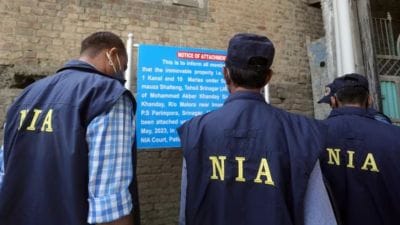Bureaucratic fetters restrict NCW
NEW DELHI, June 23: How to free the National Commission for Women from the bureaucratic strangle-hold and make it an autonomous body? At the...

NEW DELHI, June 23: How to free the National Commission for Women from the bureaucratic strangle-hold and make it an autonomous body? At the day-long NCW conference, this seemed to be bothering everyone present 8212; the NCW chairperson, women activists, legal experts and the non-governmental organisations. The National Commission for Women, it was pointed out, is a notch below in status as compared to other sister commissions on human rights, minorities and SC/STs. This in spite of the fact that violence against women in all strata of society has gone up manifold with 14,000 cases of rape and 27,513 cases of molestation being reported in the country last year. Delivering the keynote address, former Union Minister Margaret Alva said, 8220;It is difficult to free the commission from bureaucratic fetters because the governments tend to think that this is the only way to run a commission by the tax-payers8217; money. However, in the past three years the NCW did not wait for reforms, but reached out to the people.8221;However, the NCW, which was set up in 1992 under pressure from the women8217;s movement, is facing numerous problems in its daily functioning. That its lack of autonomy and a clear-cut status is hampering the NCW8217;s effectiveness was pointed out by almost each and every speaker.
In fact, Sarala Gopalan, joint secretary in the Department of Women and Child Welfare, drew lot of flak when she suggested that the nebulous, undefined status can help the chairperson shape the commission in her own way. In its present form, the commission has not been able to get the Parliament to discuss any of the reports submitted to the government. Besides, several of its recommendations are gathering dust in various ministries.
NCW chairperson V. Mohini Giri said, 8220;During my tenure the commission reached out to 15 million women through its mass contact programme. However, we are not sure whether we had any impact on the lives of the women on the street. We are literally at the cross-roads and need to take another hard look at the lacunae in the NCW Act 1990 itself.8221;
- 01
- 02
- 03
- 04
- 05































